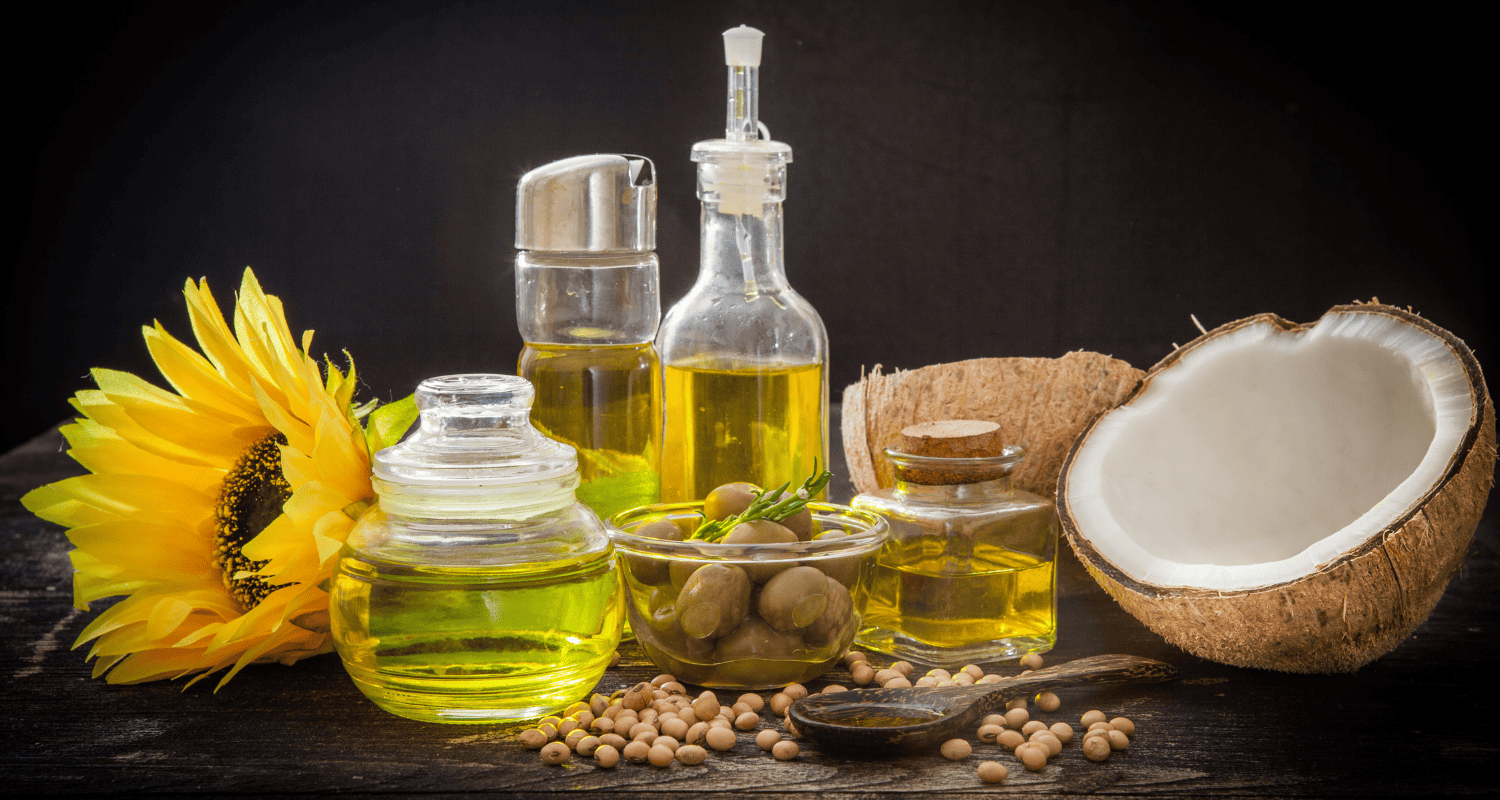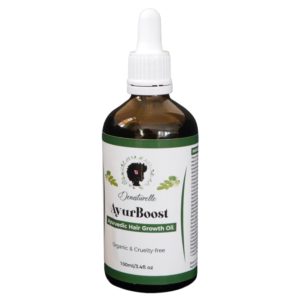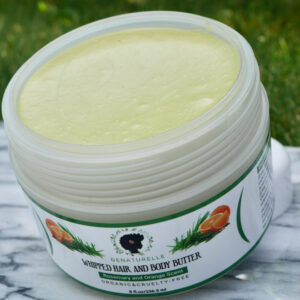15 best oils to stop natural hair from dryness

Natural hair needs a lot of care and nurturing and having dry, brittle hair is the worst nightmare especially if you are trying to grow healthy and long natural hair. Whether you have thick curly type 3-4 or fine coily hair type 3-4, it is important to choose the right products. Natural oils can help to nourish, protect, and strengthen your hair, as well as add shine and improve manageability. In this article, we will explore 15 of the best natural oils that stop your hair frm being dry and brittle.
Avocado oil
Avocado oil is rich in vitamins A, D, and E, as well as fatty acids. It can help to nourish and strengthen hair, as well as improve its elasticity and shine. Avocado oil is rich in healthy fats, vitamins, and antioxidants that can help to moisturize and nourish the hair strands. It can penetrate the hair shaft, providing deep hydration and restoring moisture to dry and brittle hair. Avocado oil can also be used as a leave-in conditioner. Cold-pressed avocado oil has a rich, intense green colour that gives beautiful color to your cosmetic formulations.
Amla oil
Amla oil is a popular Ayurvedic remedy used for hair care. It is derived from the Indian gooseberry, known as amla or Emblica officinalis. Amla oil is rich in essential fatty acids, antioxidants, and vitamin C and has healthy benefits especially for those suffering from alopecia and thinning hair. It nourishes the scalp, promoting a healthy environment for hair growth. It can help prevent dryness, itchiness, and flakiness of the scalp. The antibacterial and antifungal properties of amla oil can help combat dandruff and scalp infections.
Baobab oil
Baobab oil is a natural oil extracted from the seeds of the baobab tree (Adansonia digitata). It has been used for centuries in Africa for various purposes, including skincare and hair care. The oil is rich in essential fatty acids, vitamins A, D, E, and F, and antioxidants, which make it beneficial for hair health.
Baobab oil is a great natural moisturizer for the hair as it helps to seal in moisture, preventing dryness and brittleness. Due to its high antioxidant content, the oil helps protect the hair and scalp from free radicals and environmental damage and act as a natural shield against UV radiation, pollution, and other harmful factors that can damage the hair. No wonder it is highly used by the populations of the African savannah! Baobab oil has soothing properties that can help alleviate dryness and itchiness on the scalp. It can also help balance the scalp’s natural oil production, reducing excessive oiliness or dryness.
Castor oil
Castor oil is a thick and viscous oil that can penetrate deep into the hair shaft, providing intense moisture to dry and damaged hair. It can also help hydrate the scalp, reducing dryness, flakiness, and itchiness. The moisturizing properties of castor oil can help strengthen the hair shaft and prevent breakage. By lubricating the hair, it reduces friction and tangling, leading to fewer split ends and hair damage. Castor oil can be used as a deep conditioning treatment for the hair and can be left in the hair before washing it out. The antimicrobial and anti-inflammatory properties of castor oil make it beneficial for treating scalp conditions like dandruff, scalp infections, and folliculitis.
Coconut oil
Coconut oil is a popular natural oil that is easily absorbed by hair strands. It is rich in fatty acids that help to moisturize and protect the hair from damage. Coconut oil also has antifungal properties that can help to fight dandruff and other scalp conditions. Coconut oil is one of the most popular oils for natural hair. It is rich in fatty acids that can help to nourish and strengthen hair, as well as add shine and reduce frizz. However, I do not recommend using this oil during winter days because it can dry your hair. For those who cannot use coconut oil, babasssu oil is a better alternative.
Grapeseed oil
Grapeseed oil is a lightweight oil that is rich in antioxidants and vitamin E and easily absorbed by the hair. It can help to moisturize and protect hair, as well as improve its shine and manageability. It helps to nourish and hydrate the hair strands without leaving a greasy residue. Apply a small amount of grapeseed oil to the hair to add a natural shine, make your hair appear healthier and more lustrous. The vitamin E and antioxidants in grapeseed oil can help strengthen the hair follicles and protect them from damage caused by free radicals and environmental factors. It reduces frizz and flyaways. Grapeseed oil can help tame frizz and flyaways, making the hair more manageable and smooth. It can also be applied as a finishing oil after styling or as a leave-in treatment.
Hemp seed oil
Hemp seed oil is rich in essential fatty acids, including omega-3 and omega-6, which are beneficial for maintaining healthy hair. These fatty acids help nourish and moisturize the hair and scalp, preventing dryness and promoting overall hair health. Applying hemp seed oil to the scalp can help address various scalp conditions such as dryness, itching, and flakiness. The oil possesses moisturizing properties that can soothe and hydrate the scalp, reducing irritation and promoting healthy hair growth. These presence of fatty acids in hemp seed oil nourish the hair follicles and strengthen the hair strands, potentially leading to healthier and longer hair over time.
Moringa oil
Moringa oil is rich in nutrients, such as vitamins A, E, and C, which can nourish and moisturize the hair. It helps to hydrate and strengthen the hair strands, reducing dryness and brittleness. Moringa oil has antimicrobial and anti-inflammatory properties that can help maintain a healthy scalp. It may help alleviate dandruff, dryness, and itching, promoting a clean and balanced scalp environment.
Olive oil
Olive oil is another popular oil for natural hair. It is rich in antioxidants, which can help to protect hair from damage, as well as vitamins and minerals that can help to nourish and strengthen hair. Olive oil can be beneficial for a dry or itchy scalp. Gently massage a small amount of olive oil onto your scalp to help moisturize and alleviate dryness. Leave it on for about 20 minutes before shampooing your hair. Using olive oil as a prepoo or hot oil treatment, helps to keep the hair moisturized especially during the winter days. It is important to use Extra Virgin OIive oil (EVOO) to get all the necessary nutrients that will provide benefit for your hair.
Pumpkin seed oil
Pumpkin seed oil is a popular natural oil that has been used for various purposes, including for hair care. It is rich in nutrients such as vitamins A, K, and E, as well as omega-3 and omega-6 fatty acids, which can benefit the health of your hair and scalp. The nutrients in pumpkin seed oil can help nourish and moisturize the scalp, reducing dryness and flakiness. This can contribute to a healthier scalp environment and may help prevent conditions like dandruff. Pumpkin seed oil contains a compound called dihydrotestosterone (DHT) blocker, which is believed to inhibit the production of DHT. DHT is a hormone associated with hair loss, so using pumpkin seed oil may help prevent or slow down hair loss.
Rapeseed oil
Rapeseed oil, also known as canola oil is derived from the seeds of the rapeseed plant. This oil is primarily used for culinary purposes. However, cold-pressed rapeseed oil used in the formulation of cosmetic products has many benefits such as moisturizing. The oil is rich in fatty acids, including omega-3 and omega-6, which can help moisturize and nourish the hair. It can penetrate the hair shaft, providing hydration and preventing moisture loss, particularly for dry or damaged hair. The fatty acids present in rapeseed oil can contribute to the overall strength and resilience of the hair strands. This can help reduce breakage and promote healthy hair growth. Applying rapeseed oil to the scalp can help soothe and moisturize dry, itchy, or flaky scalp conditions, improve blood circulation, which may promote a healthier scalp environment.
Safflower oil
Safflower oil is particularly recommended for those with low porosity as it is light in consistency. The oil is rich in oleic acid, which helps to moisturize and condition the hair. It can help soften dry, brittle hair and restore moisture to the strands. Safflower oil contains vitamin E, which is an antioxidant that can help protect the hair from environmental damage, such as UV rays and pollution. It forms a protective barrier on the hair strands, preventing moisture loss and damage from heat styling tools.
Sunflower oil
Sunflower oil is widely used as a base oil for herbal infusions and extracts in cosmetic products. The oil is rich in essential fatty acids, including omega-6 fatty acids, which help to moisturize the hair and prevent dryness. It can be particularly beneficial for people with dry or damaged hair. Massaging sunflower oil onto the scalp can help nourish and hydrate the scalp, promoting a healthy environment for hair growth. It can also help alleviate dryness, flakiness, and itchiness. Sunflower oil contains vitamin E, which is an antioxidant that helps protect the hair from free radicals and environmental damage. It can also strengthen the hair strands, making them less prone to breakage.
Sesame seed oil
Sesame seed oil is rich in essential fatty acids like omega-3, omega-6, and omega-9, as well as vitamin E. These nutrients help nourish and moisturize the hair strands, preventing dryness and promoting softness. The oil contains nourishing properties that can help stimulate hair growth. It penetrates deep into the scalp, improving blood circulation and providing the necessary nutrients to the hair follicles. This, in turn, can promote healthy hair growth.
Wheat germ oil
Wheat germ oil is rich in vitamin E, which is a powerful antioxidant that helps nourish and protect the hair follicles. It can help moisturize and condition the hair, making it softer and more manageable. The nutrients in wheat germ oil, such as B vitamins, zinc, and omega-3 fatty acids help promote healthy hair growth. Massaging the oil onto the scalp can help improve blood circulation and provide essential nutrients to the hair follicles. Wheat germ oil contains proteins that can help strengthen the hair shaft, reducing breakage and split ends. It also add shine and luster to dull and dry hair. The moisturizing properties of wheat germ oil can help soothe a dry, itchy scalp and help in reducing scalp inflammation and dandruff.
In conclusion, natural oils are a great way to take care of your natural hair. Since curly, coily and kinky hair tend to be dry often due to the lack of moisture retention, these natural oils can help to nourish, protect, and strengthen your hair, as well as add shine and improve your overall hair health. Make sure that these 15 natural oils are in the list of ingredients in your hair care products.
-
 AyurBoost hair growth oilkr260.00
AyurBoost hair growth oilkr260.00 -
 Whipped hair – body butter Rosemary & Orangekr255.00
Whipped hair – body butter Rosemary & Orangekr255.00
